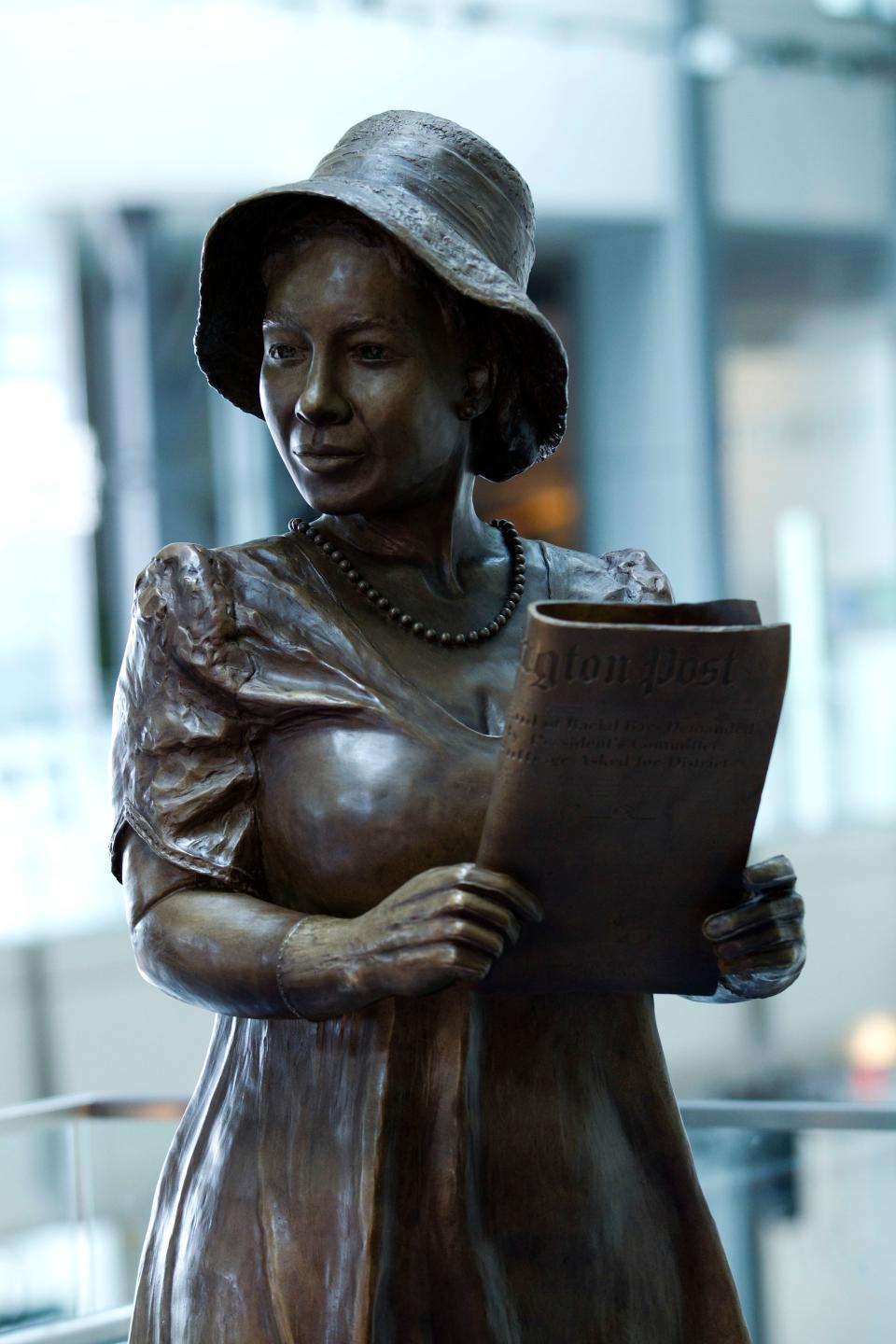Black journalist Alice Allison Dunnigan is an inspiration to female journalists like me

It is a thrilling and highly deserved honor: A statue of Alice Allison Dunnigan, the first African-American woman to receive White House press credentials and the first black female member of the Senate and House of Representatives press galleries, is moving around the country. Dunnigan’s likeness has traveled from the Newseum in Washington to the University of Kentucky and will display at the Harry S. Truman Presidential Library and Museum in Missouri before moving to Dunnigan’s hometown later this year.
But even as we celebrate this recognition, it would be a mistake to neglect the suffering and enormous odds Dunnigan had to overcome to attain it.

As I note in my book, "Trailblazer: A Pioneering Journalist’s Fight to Make the Media Look More Like America," I deeply admire Dunnigan and other women of the black press who broke race and gender barriers. But romanticizing their contributions and minimizing their pain does them an injustice by obscuring the racist and sexist system in which black Americans of all genders had to operate — and operate still.
Read more commentary:
Martin Luther King Jr. would be disappointed in today's small and divisive leaders
When Martin Luther King Jr. was killed, he was less popular than Donald Trump is today
An MLK speech more nightmare than dream: Tom Krattenmaker
Carol McCabe Booker, editor of "Alone Atop the Hill: The Autobiography of Alice Dunnigan Pioneer of the National Black Press," noted that Dunnigan notched her achievements “in a system that restricted the options of black men in ways different from those of women, but no less oppressive.”
Born in Russellville, Ky., Dunnigan grew up in poverty, managed to train as a teacher and taught school before moving to Washington, D.C. She became a reporter and later a one-person Washington bureau for the Associated Negro Press in 1948.
Her pay was so low that she had to pawn her watch on Fridays to obtain money to buy food for the weekend, and often ate such fare as hog ears and greens with her limited funds. When her paycheck arrived in the mail, she would reclaim her watch.
She is an inspiration for all female journalists
She would go on to become the first black woman accredited as a White House correspondent. When President Truman took a 15-day train trip to the West Coast in 1948, she was the first black female journalist to travel on a presidential journey — a trip she paid for by taking out a loan. Even as police at some stops on the tour questioned her presence and one even yanked her out of the line of reporters, Truman treated her with dignity and respect. Her stories appeared on the front pages of black newspapers across the country.
By the time I came to Washington in October 1961 to become the first black female reporter at The Washington Post, Dunnigan had left journalism. I did not get to know her personally but was introduced to her at one of the annual Christmas parties given by Ebony and Jet magazines, hosted by Simeon Booker, who had been the Washington Post’s first black reporter and a pioneer who started covering civil rights for the black press long before Dunnigan’s time.
Dunnigan was a woman who never gave up despite hardships and prejudice. She’s a special inspiration to me and to generations of female journalists of all races.
Dorothy Butler Gilliam was the first African-American female reporter, columnist and editor at The Washington Post. Her memoir, "Trailblazer: A Pioneering Journalist's Fight to Make the Media Look More Like America," was released on Jan. 8.
You can read diverse opinions from our Board of Contributors and other writers on the Opinion front page, on Twitter @usatodayopinion and in our daily Opinion newsletter. To respond to a column, submit a comment to letters@usatoday.com.
This article originally appeared on USA TODAY: Black journalist Alice Allison Dunnigan is an inspiration to female journalists like me

